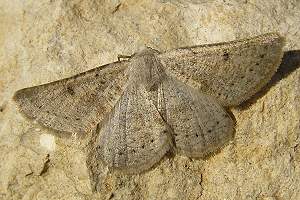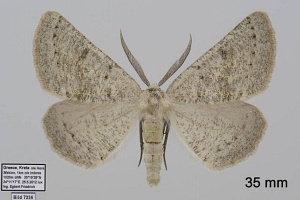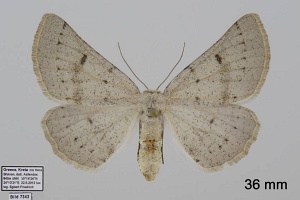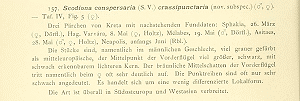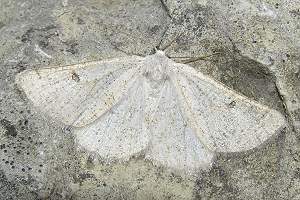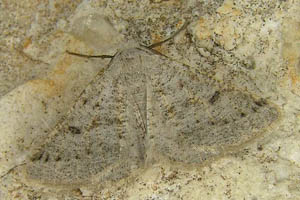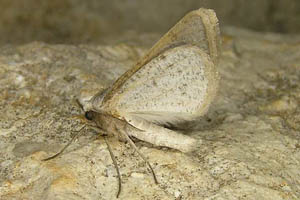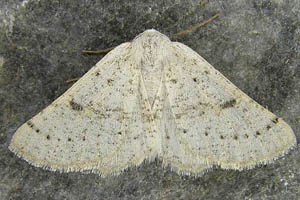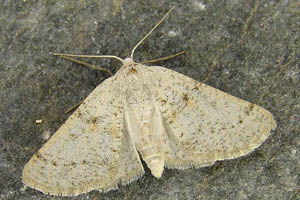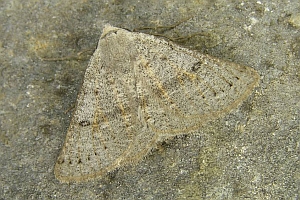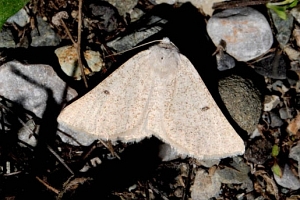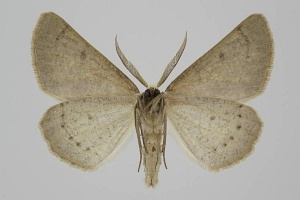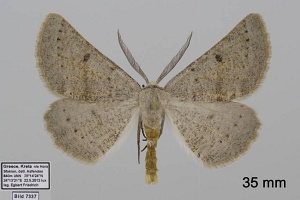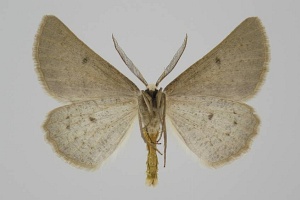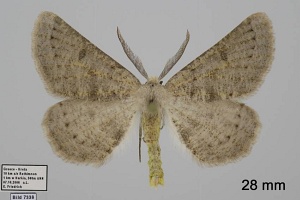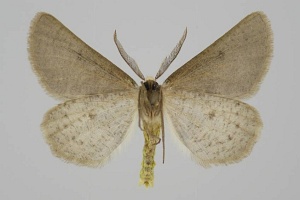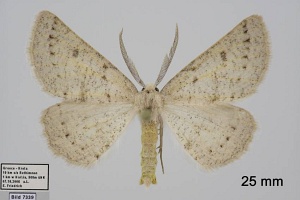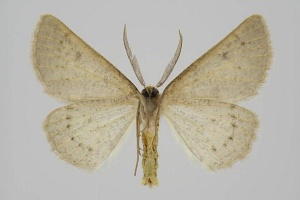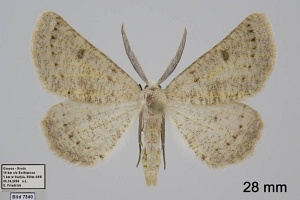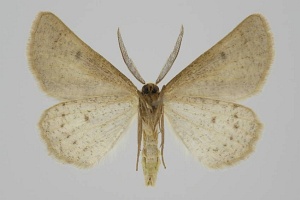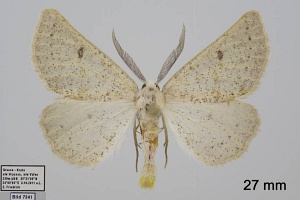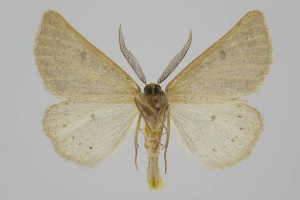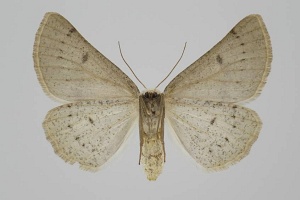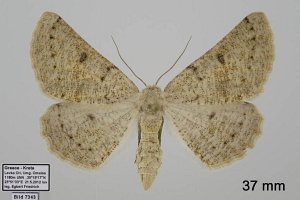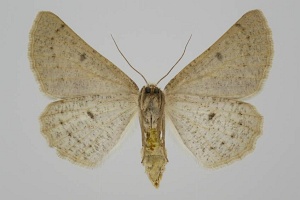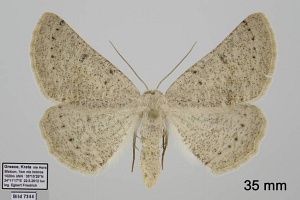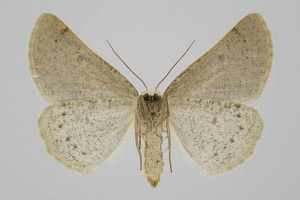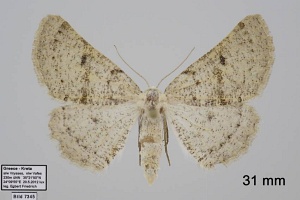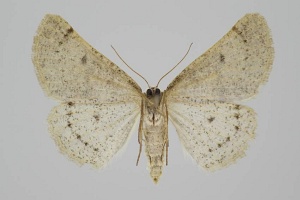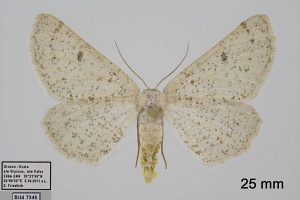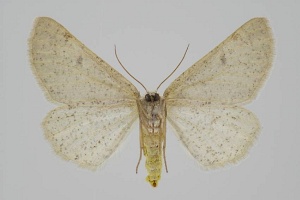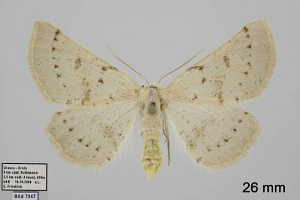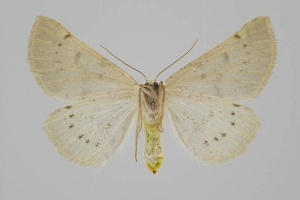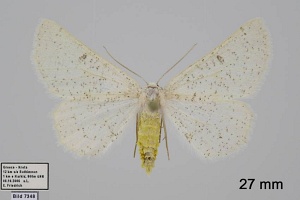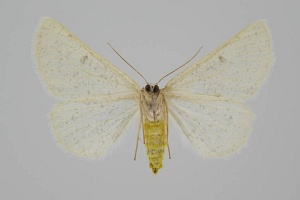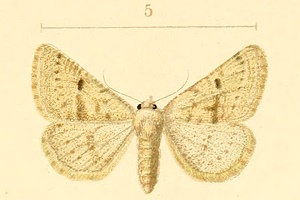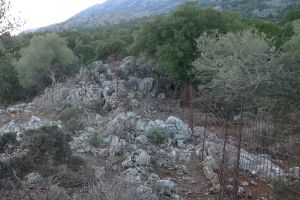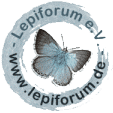Inhalt
1. Lebendfotos
1.1. Falter
1: ♂, Griechenland, Kreta, 10 km SE Rethimnon, 1 km W Harkia, 500 m, 6. Oktober 2006, Lichtfang (Aufnahme: Egbert Friedrich), det. Egbert Friedrich
2: ♀, Griechenland, Kreta, 8 km S Rethimnon, 2,5 km S Armeni, 450 m, 16. Oktober 2006, Lichtfang (Aufnahme: Egbert Friedrich), det. Egbert Friedrich
3-4: ♂, Griechenland, Kreta, südwestlich Vrysses, nordwestlich Vafes, 230 m, 3. Oktober 2011 Lichtfang (leg., fot. & det.: Egbert Friedrich)Forum
5-6: ♀, Griechenland, Kreta, südwestlich Vrysses, nordwestlich Vafes, 230 m, 3. Oktober 2011 Lichtfang (leg., fot. & det.: Egbert Friedrich)Forum
7: ♂, Griechenland, Kreta, südwestlich Vrysses, südlich Vafes, 280 m, 17. Mai 2012, Lichtfang (leg., det. & fot.: Egbert Friedrich)Forum
8: ♀, Griechenland, Kreta, Brachland bei Agia Triada, 29. März 2016, Tagfund (fot.: Hans-Werner Graf), det. Thomas FähnrichForum
2. Diagnose
2.1. Männchen
2.2. Weibchen
2.3. Erstbeschreibung
1-3: Rebel (1916: 140, 172, pl. 4 fig. 5) [nach Copyright-freien Scans auf www.biodiversitylibrary.org]
3. Biologie
3.1. Habitat
1: Lebensraum im Herbst, Griechenland, Kreta, südwestlich Vrysses, nordwestlich Vafes, 230 m, 3. Oktober 2011 (Foto: Egbert Friedrich)Forum
2: Lebensraum im Herbst, Griechenland, Kreta, südwestlich Vrysses, südlich Vafes, 280 m, 3. Oktober 2011 (Foto: Egbert Friedrich)Forum
3: Griechenland, Kreta, 2 km S Alikambos, Eichen-Busch-Kalkfels-Ziegenweide, 35°19.75'N, 24°12.20'E, 470 m, 28. Oktober 2013 (fot.: Hartmuth Strutzberg)Forum
4. Weitere Informationen
4.1. Andere Kombinationen
- Scodiona conspersaria crassipunctaria Rebel, 1916 [Originalkombination]
4.2. Typenmaterial
Rebel (1916) schreibt zu seinen Syntypen: "Drei Pärchen von Kreta mit nachstehenden Funddaten: Sphakia, 26. März (♀, Dörfl.), Hag. Varvára, 8. Mai (♀, Holtz), Mélabes, 19. Mai (♂, Dörfl.), Asitaes, 28. Mai (♂, ♀, Holtz), Neapolis, anfangs Juni (Rbl.)."
4.3. Faunistik
Ein Endemit Kretas, von dem auch ein Einzelexemplar auf Rhodos gefunden wurde (Skou & Sihvonen 2015).
4.4. Literatur
- Erstbeschreibung: Rebel, H. (1916): Die Lepidopterenfauna Kretas. — Annalen des Naturhistorischen Museums Wien 30: 66-172, pl. IV.
- Skou, P. & P. Sihvonen (2015): The Geometrid Moths of Europe [A. Hausmann (ed.)]. Volume 5. Subfamily Ennominae I (Abraxini, Apeirini, Baptini, Caberini, Campaeini, Cassymini, Colotoini, Ennomini, Epionini, Gnophini (part), Hypochrosini, Lithinini, Macariini, Prosopolophini, Theriini and 34 species of uncertain tribus association). - 657 S.; (Brill) Leiden.
- Lectotypus-Festlegung: Trusch, R. & S. Erlacher (2002): Taxonomic changes in the genus Dyscia (Lepidoptera: Geometridae: Ennominae). — European Journal of Entomology 99: 529-541 [PDF auf www.eje.cz].




![Vorkommen auf Kreta [Skou & Sihvonen (2015: 435)]](/res/img/flag/gr.gif)
